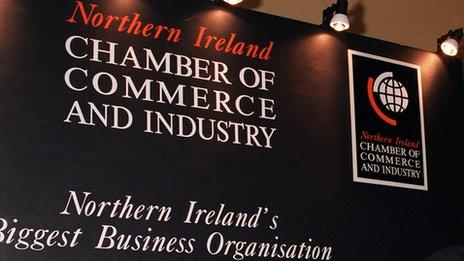NI business people's 'relief' over Scottish 'no' vote
- Published
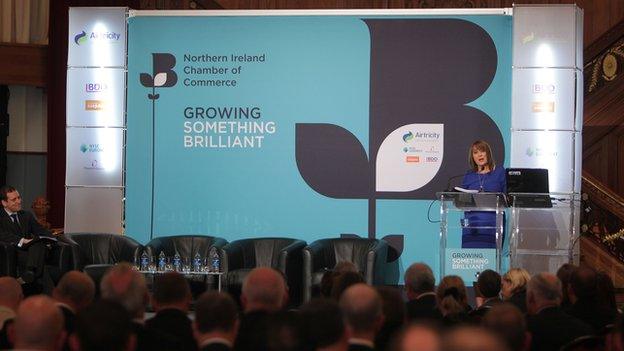
The Chamber of Commerce and Industry expressed relief at Scotland's decision to remain within the United Kingdom
Scotland's decision to remain within the United Kingdom will be a relief for Northern Ireland business people, the head of the Chamber of Commerce said.
Ann McGregor said uncertainty about Scotland had slowed down vital decisions in business.
She said this was particularly true for investment which, in the long term, would impact on growth and employment.
"Scotland is a very important trading area," she said.
"PwC's latest Economic Outlook estimates that annual Northern Ireland manufacturing sales to Scotland are approximately £700m.
"Those businesses faced the possibility of having to deal with two separate regulatory regimes, two different tax systems and possibly even an exchange rate - none of which would make business any easier."
Ms McGregor said the business community was now awaiting the Prime Minister's decision on the devolution of corporation tax powers to Northern Ireland.
"We hope that this can now reach a quick conclusion, with the powers devolved, shortly," she said.

What does it mean for Northern Ireland's economy?
Analysis by John Campbell, BBC News NI, Economics and Business Editor
With the main Westminster parties promising more devolution, it now seems logical that corporation tax powers for Stormont are certain.
But what about the timetable?
It had been expected that an announcement would be made before the autumn statement in December.
But that David Cameron saying that devolution must move "in tandem" across the UK nations does that tie corporation tax into a different time table?
The other big question is what becomes of the Barnett Formula - the method for working out spending for the devolved administrations.
Northern Ireland does well under that system - it has the highest per capita spending for any part of the UK.
The main Westminster parties have said they will keep Barnett - but can it survive in its current form?

What does it mean for Northern Ireland's farmers?
Analysis by Richard Wright, BBC News NI, Agricultural Correspondent
As a country with large rural constituencies and many towns dependent on agriculture, Scottish farmers were well engaged with the referendum debate.
Some high profile figures backed the 'yes' vote, but there was a sense that most farmers were set to vote 'no' over concerns about future membership of the European Union and the Common Agricultural Policy.
Scotland has an SNP farm minister who has made promises about what independence would deliver.
With the no vote, some issues are not going to disappear - including more independence from London when negotiating in Brussels and, crucially, the Scots wanting a reallocation in the UK single farm payments subsidy scheme in 2017 in a way that would be to the significant disadvantage of farmers in Northern Ireland.
- Published19 September 2014
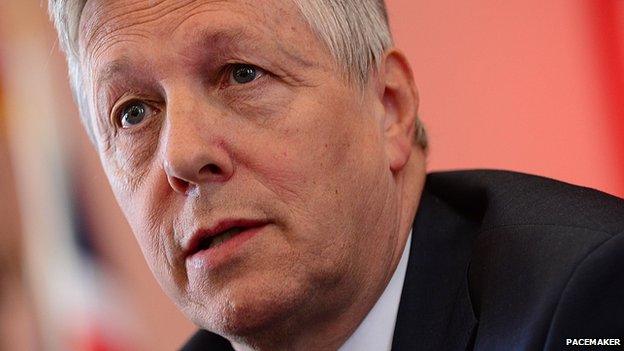
- Published19 September 2014
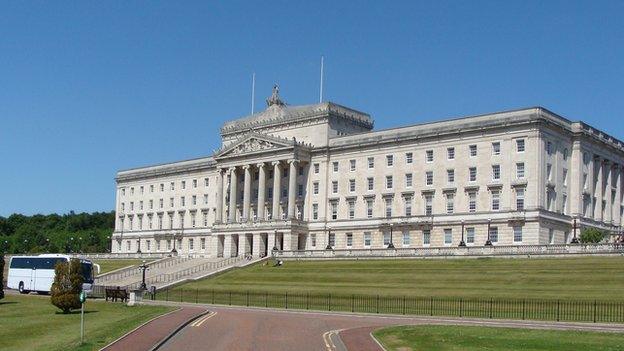
- Published2 June 2014
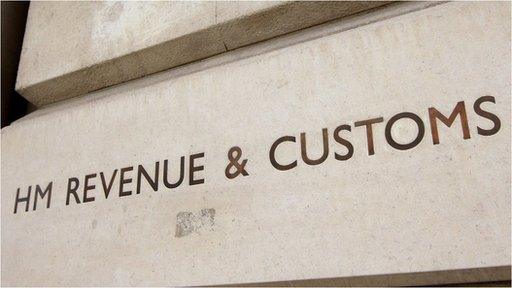
- Published6 February 2014
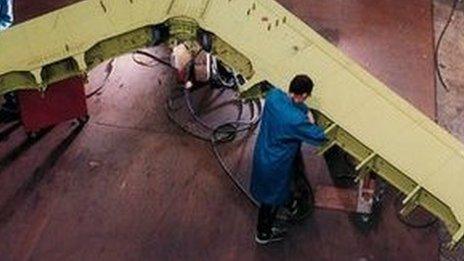
- Published7 January 2014
